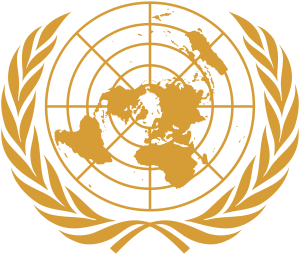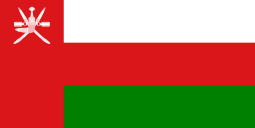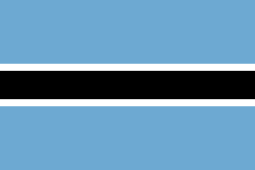United Nations Statistical Commission
The United Nations Statistical Commission (StatCom) is a Functional Commission of the UN Economic and Social Council established in 1946.[1] It oversees the work of the United Nations Economic and Social Council. Its 24 member states are elected by the Economic and Social Council on the basis of the following geographical distribution: African states (5), Asian States (4), Eastern European States (4), Latin American and Caribbean States (4), Western European and other States (7). Since July 1999 the Commission meets every year. As set forth by the Economic and Social Council, in the terms of reference,[2] the Commission shall assist the Council:
- "In promoting the development of national statistics and the improvement of their comparability;"
- "In the coordination of the statistical work of specialized agencies;"[3]
- "In the development of the central statistical services of the Secretariat;"
- "In advising the organs of the United Nations on general questions relating to the collection, analysis and dissemination of statistical information;"
- "In promoting the improvement of statistics and statistical methods generally."
 | |
| Abbreviation | StatCom |
|---|---|
| Formation | 1947 |
| Type | Intergovernmental organization, regulatory body, advisory board |
| Legal status | Active |
| Headquarters | New York, USA |
Head | Chair of the UN Statistical Commission |
Parent organization | United Nations Economic and Social Council |
| Website | Statistical Commission at unstats.org |
One of the best known subunits of the Statistics Division is the United Nations Group of Experts on Geographical Names (UNGEGN), also known as the United Nations Conference on the Standardization of Geographical Names (UNCSGN). This unit attempts to standardize the names of locations across languages, alphabets, and cultures.
The sixth UN Conference on the Standardization of Geographical Names was in 1992 (New York), the seventh in 1998 (New York), the eighth in 2002 (Berlin), and the ninth in 2007 (New York). One issue addressed at these conferences was the Sea of Japan naming dispute.
The Bureau
The officers are the Chairman, 3 Vice-chairmen and the Rapporteur, elected for a one-year period by the members of the Commission at the beginning of a session. Since 1999, its role is more of a steering one; the Chairman may seek for complementary assistance from other members (Friends of the Chair).
- Chairmanship [4]
Year Session Country Chair 2018 49th 
Zachary Mwangi 2017 48th 
Wasmália Bivar 2016 47th 
Wasmália Bivar 2015 46th 
John Pullinger 2014 45th 
Jil Matheson 2013 44th 
Gabriella Vukovich 2012 43rd 
Gabriella Vukovich 2011 42nd 
Ali Bin Mahboob 2010 41st 
Ali Bin Mahboob 2009 40th 
Pali Lehohla 2008 39th 
Pali Lehohla 2007 38th 
Gilberto Calvillo Vives 2006 37th 
Gilberto Calvillo Vives 2005 36th 
Katherine Wallman 2004 35th 
Katherine Wallman 2003 34th 
Tamás Mellár 2002 33rd 
Tamás Mellár 2001 32nd 
Shigeru Kawasaki 2000 31st 
Guest Charumbira 1999 30th 
Guest Charumbira 1997 29th 
Carlos Jarque 1995 28th 
Bill Mclennan 1994 Special session 
Jozef Olenski 1993 27th 
Willem Begeer 1991 26th 
Willem Begeer 1989 25th 
Luis Alberto Beccaria 1987 24th 
Emmanuel Oti Boateng 1985 23rd 
Tom Linehan 1983 22nd 
Vera Nyitrai 1981 21st 
Joseph W. Duncan 1979 20th 
Mikhail Antonovich Korolev 1976 19th 
V. R. Rao 1974 18th 
Claus Moser 1972 17th 
Jean Ripert 1970 16th 
Jean Ripert 1968 15th .svg.png)
Keith Archer 1966 14th 
Petter Jakob Bjerve 1965 13th 
Petter Jakob Bjerve 1962 12th 
Donal Mccarthy 1960 11th 
Donal Mccarthy 1958 10th 
George Wood 1956 9th 
P.C. Mahalanobis 1954 8th 
P.C. Mahalanobis 1953 7th 
Harry Campion 1951 6th 
Harry Campion 1950 5th 
Philip Idenburg 1949 4th 
Philip Idenburg 1948 3rd .svg.png)
Herbert Marshall 1947 (August) 2nd .svg.png)
Herbert Marshall 1947 (January) 1st .svg.png)
Herbert Marshall 1946 Nuclear session 
Stuart A. Rice
See also
- Committee for the Coordination of Statistical Activities (CCSA)
- List of national and international statistical services
- United Nations Statistics Division
- Voorburg group
- World Statistics Day
References
- see all reports at
- Background information on the Statistical Commission and practical information on its functioning
- refer also to Committee for the Coordination of Statistical Activities (CCSA)
- Chairs of past sessions
Further reading
- Hausner, Isolde: Die „United Nations Group of Experts on Geographical Names“ (UNGEGN) und die Standardisierung geographischer Namen. In: Kainz, W. / Kriz, K. / Riedl, A. (eds.): Aspekte der Kartographie im Wandel. Festschrift für Ingrid Kretschmer zum 65. Geburtstag. Wien 2004 (= Wiener Schriften zur Geographie und Kartographie).
- Kerfoot, Helen: Role of the United Nations in the standardization of geographical names: some fifty years on. In: United Nations, Department of Economic and Social Affairs, Statistics Division (ed.): Manual for the standardization of geographical names. United Nations Group of Experts on Geographical Names. New York 2006: 83-97. ISBN 92-1-161490-2